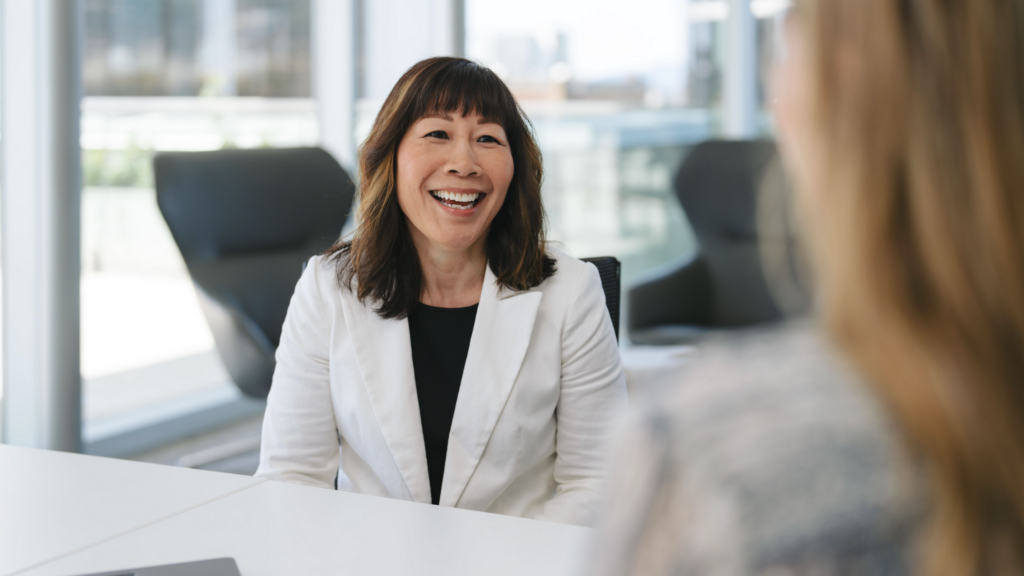Many of our clients come to Genus because they want to make a positive impact with their investments. They know their financial resources are powerful, and that they can make change in the world through their investment portfolio.
Most of them, however, have not explicitly articulated what kinds of change they want to help facilitate, and how they’re going to do so. To get there, we help them create a personal theory of change. Here’s why it’s an important part of our work – and a crucial component of a strategic and targeted impact investment portfolio.
What is a theory of change?

A theory of change is essentially a statement about how a specific strategy or action can lead to an expected outcome. For example, if you were around in the ’70s and ‘80s, you might remember the government’s anti-smoking campaigns. These were based on one of the most well-documented, real-world applications of a theory of change. The theory was that an intentional combination of research on smoking risks, funding for public health campaigns and partnerships with schools and healthcare providers could effectively lower smoking rates, and result in fewer smoking-related diseases and reduced healthcare costs. And the theory was right. About half of all Canadians smoked in 1965, as compared to just one in 10 in 2020.
In the context of social, environmental or systems change, a theory of change allows an investor to clearly articulate the outcome they’re looking for, and how they’ll get there. In the UK and Europe, for example, some impact funds have a theory of change, and so do a lot of players in the private impact space. “A theory of change provides a sense of agency when it comes to how people live their values,” says Darryl Brown, portfolio manager at Genus. “It helps focus on the investor’s priorities and direct their capital toward companies that are making in-roads in those areas.”
For example, one client we worked with was extremely passionate about food security and food systems. They had written books on the topic, and lived their life in alignment with their support for local food producers. “We had a lot of back and forth conversations about investing their money in a way that had the maximum amount of impact,” Brown says. “Their primary objective was diverting their investments into areas that had been traditionally overlooked.”
Most impact investors choose investment strategies and products based on two sets of criteria: measurable social impact and financial performance. But that can also create a bias toward sending money to places with an established track record. “This investor understood that bias,” Brown says. “And by articulating their boundaries, they were able to push back against that approach.”
Why a personal theory of change is a tool any investor can use

Having an articulated theory of change can help you better understand your financial power – and the power of your investing decisions. “Most people believe they have power as consumers,” Brown says. “But a lot of people only relate their desire to make change to their human capital – their day to day choices in work and consumption. Many don’t realize that they can also make change with their financial capital. So having a theory of change for investors applies that lens to your investment capital, too.”
A theory of change can help you focus your investment strategies around your core values and priorities. “This could be as simple as a specific topic area, like climate change,” Brown says. “Some clients would like to direct capital toward companies that are at least open to climate change being real. And then, moving along the impact investing spectrum, there are investors who want to invest in companies that are having a measurable impact on climate change mitigation.”
At Genus, we’ve created a theory of change for our High Impact Equity Fund. It states:
“The world is facing major, widespread environmental and social problems. Our investment strategy is centered around investing in companies that provide solutions to these major problems. In addition, we engage these companies and encourage them to make even more of a difference.”
Our theory of change focuses on supporting solutions-oriented companies, and actively engaging with them in pursuit of results – both in terms of social impact and financial returns. And it resonates with the goals many of our clients hold as well.
Start creating your theory of change

If you’re ready to start crafting your own impact investing theory of change, here’s where to start:
- Clarify your core values: Consider the issues you care deeply about. We’re often inspired by the United Nations’ Sustainable Development Goals as a starting point (and intentionally align with many of them in our impact funds).
- Consider the outcomes you would like to see: These will likely be both social and financial.
- Identify the pathways to change: It could be investing in public or private equities, green bonds or other mechanisms altogether. Your wealth manager can help you explore all the options.
- Align your investment strategies with your theory: Work with your wealth manager to match your goals to specific investment strategies, which could include divesting from harmful sectors or companies, investing in ESG funds or taking an impact investing approach.
- Measure the results: How do you know if your investments are truly making a difference? While measuring impact is complex and evolving, certain strategies can help assess progress toward intended outcomes. Choose investing strategies and products that include meaningful measurement and reporting. At Genus we use our proprietary Net Impact ScoreTM, as well as quarterly reporting to keep our clients informed about the real-world impact their investments are creating.
Looking for guidance in crafting and applying your personal theory of change? Get started today with our values-based investment services.
Impact investments involve financial risk, and returns are not guaranteed. Investors should consider their financial goals, risk tolerance, and consult a financial professional before investing.
References:
Historical trends in smoking prevalence | Tobacco Use in Canada | University of Waterloo. (n.d.). https://uwaterloo.ca/tobacco-use-canada/adult-tobacco-use/smoking-canada/historical-trends-smoking-prevalence#:~:text=Over%20the%20past%20five%20decades,steadily%20over%20this%20time%20period.











